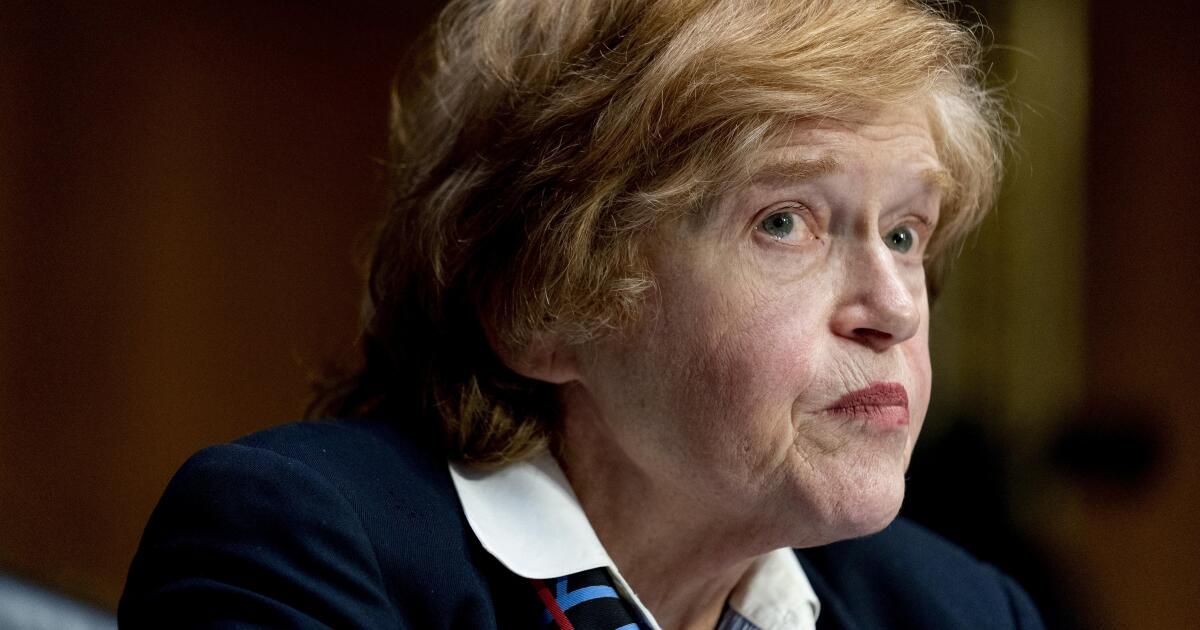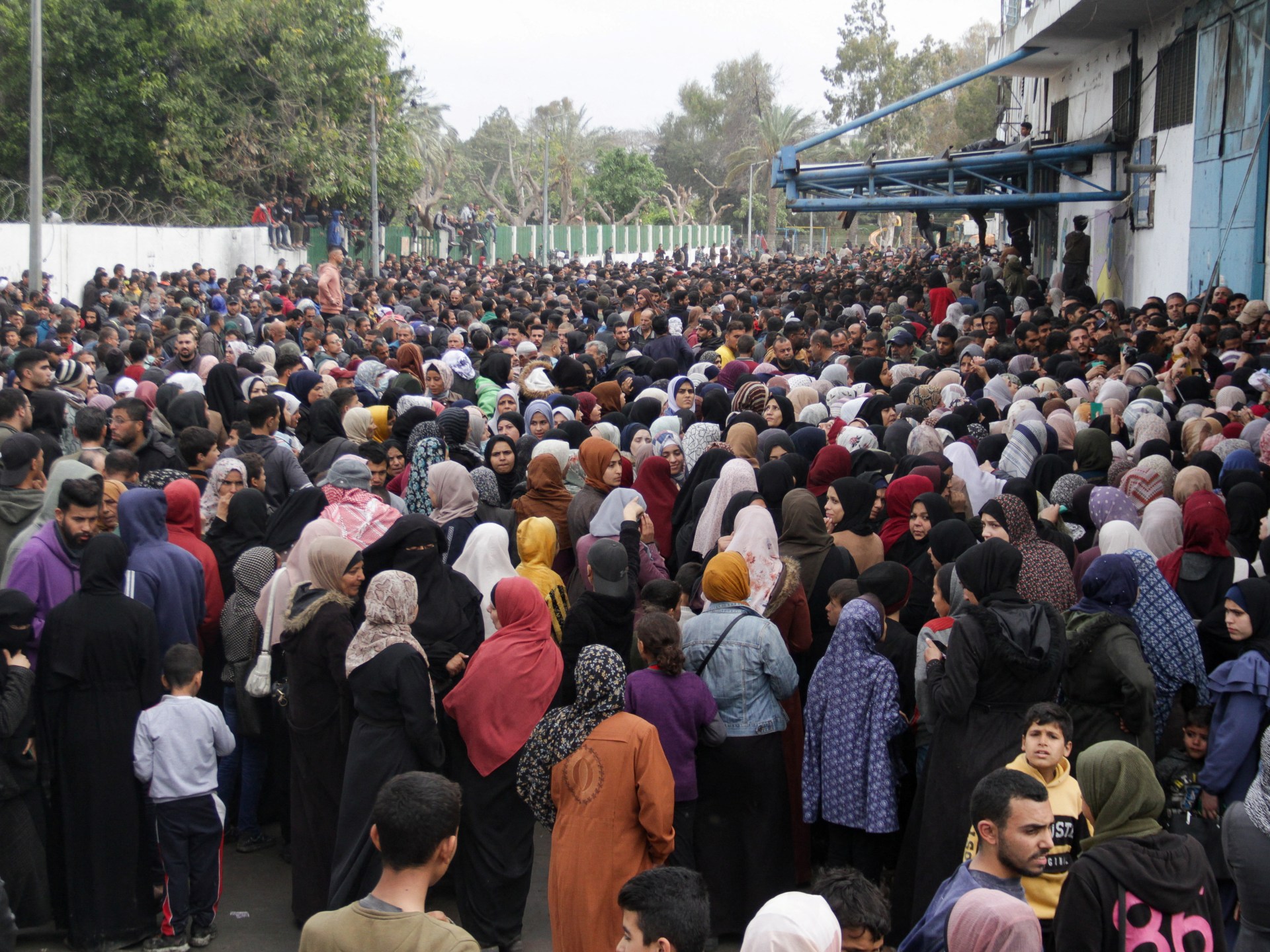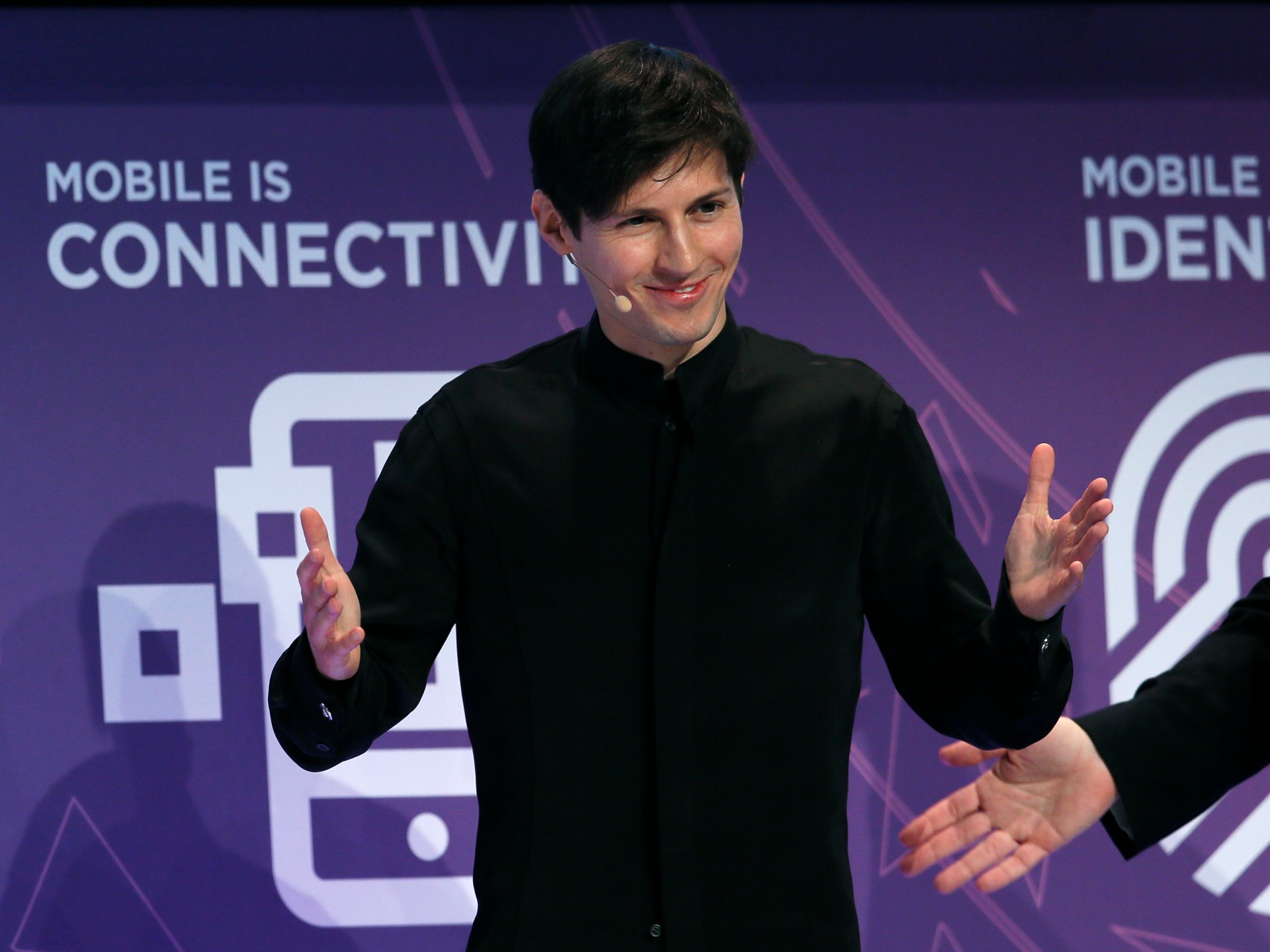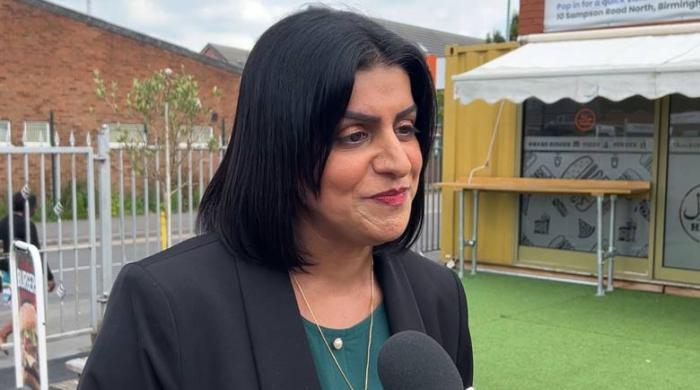Deborah Lipstadt says she works in a growing industry, one that is booming, and that is not good.
Lipstadt, already known as an acclaimed Holocaust scholar based at Emory University in Atlanta, was confirmed by Congress in 2022 as a U.S. special envoy to monitor and combat anti-Semitism abroad.
Deborah Lipstadt speaks at an event on February 14 on Capitol Hill in Washington to raise awareness about the sexual and gender-based violence Hamas has perpetrated against women and children in Israel since October 7.
(Susan Walsh/Associated Press)
The role suits him well, but he has been plagued by problems since Oct. 7, when Hamas militants launched a brutal attack on southern Israel that claimed the lives of some 1,200 Jewish people, the most in a single day since the Holocaust. The attack was followed by Israel's brutal war in the Gaza Strip, which health officials say has killed more than 38,000 Palestinians.
The consequences of this situation include waves of anti-Semitism in the United States and other countries, partly in reaction to Israel’s devastating operations and the continuing death toll. In Los Angeles, Jews wearing kippahs have been attacked, and “Death to Jews” slogans have been written in public places from Manhattan to Berlin.
In some ways, Lipstadt's job has become easier, because anti-Semitism, she said, is clearer than ever.
It’s “more real, more urgent, more immediate,” Liptstadt said in an interview in his fifth-floor office at the State Department during a recent break in his travels.
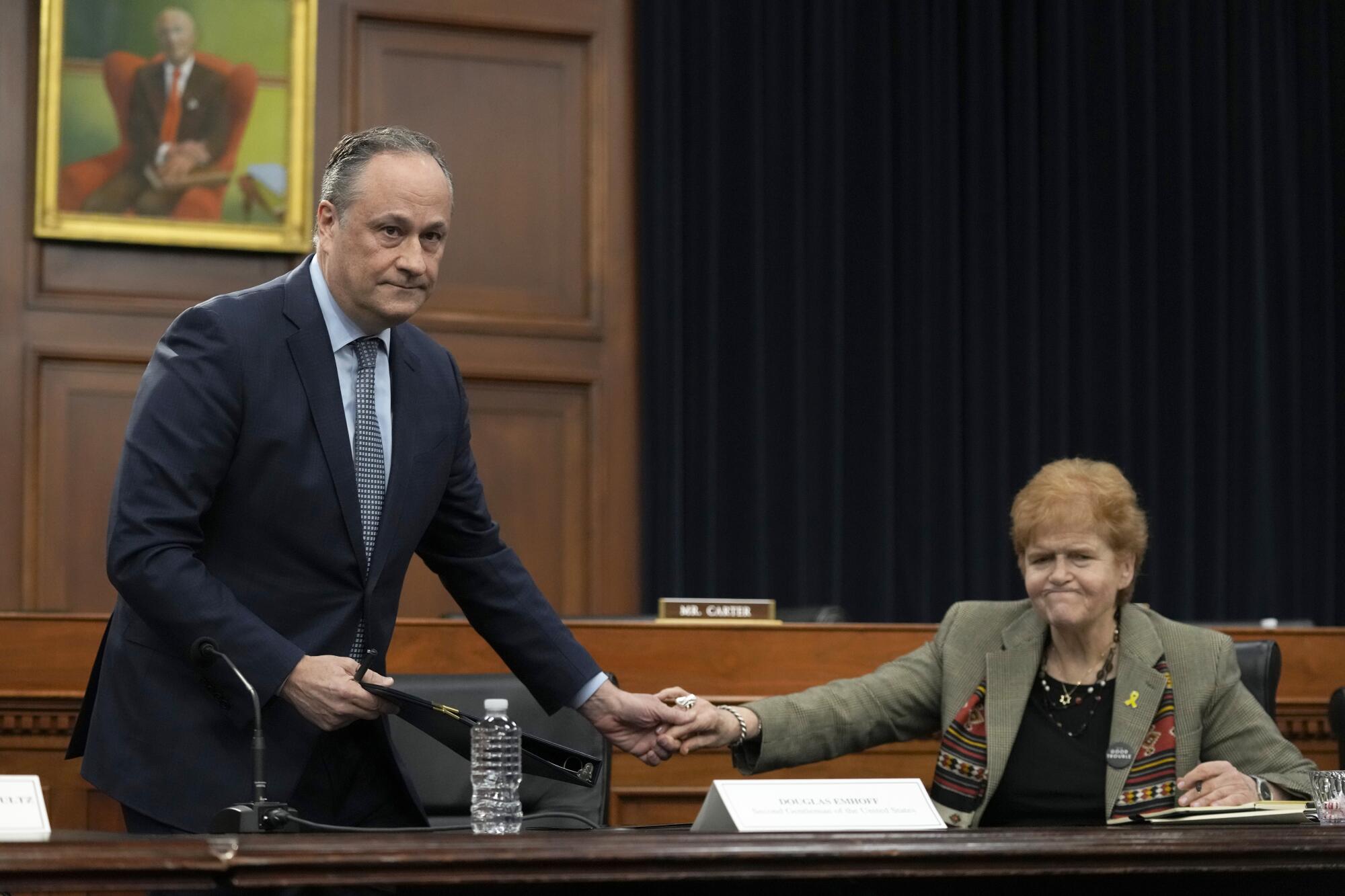
Second Gentleman Doug Emhoff greets envoy Deborah Lipstadt at an event on Capitol Hill on Feb. 14.
(Susan Walsh/Associated Press)
He considers anti-Semitism to be the oldest and most “consistent” form of hatred in world history, pointing out its presence in Christian, Muslim and atheist societies, left and right, religious and secular.
“I want people to take anti-Semitism seriously,” he said.
Lipstadt is perhaps best known as the academic who took on Holocaust denier David Irving in a British court in the late 1990s. The lengthy legal battle, in which she ultimately prevailed, was the subject of her book “Denial” and then a film of the same name starring Rachel Weisz as Lipstadt.
During the filming of the 2016 movie, the actor called the diplomat and asked her to read a few lines. This helped Weisz emulate her, according to Lipstadt, who praised the actress's performance, which is heroic, but not always complimentary.
These days, Lipstadt often finds herself challenging those who deny Israel’s right to exist. Her first trip abroad as a special envoy was to Saudi Arabia, a country that still does not recognize Israel, like much of the Arab world. She went to the arid desert kingdom in the heat of summer; her colleagues thought she was crazy.
“I'm making something clear,” he said.
Lipstadt, 77, was born and educated in New York. She has taught at UCLA and Occidental College and directed the Brandeis-Bardin Institute in Simi Valley. She wears a Star of David necklace, has rust-colored hair and a throaty, easy laugh. She is remarkably outspoken in a government agency not known for candor.
The anti-Semitism position Lipstadt holds was created in 2004 but has been vacant at times, with the longest absence occurring during the Trump administration. President Biden elevated the position to ambassadorial level.
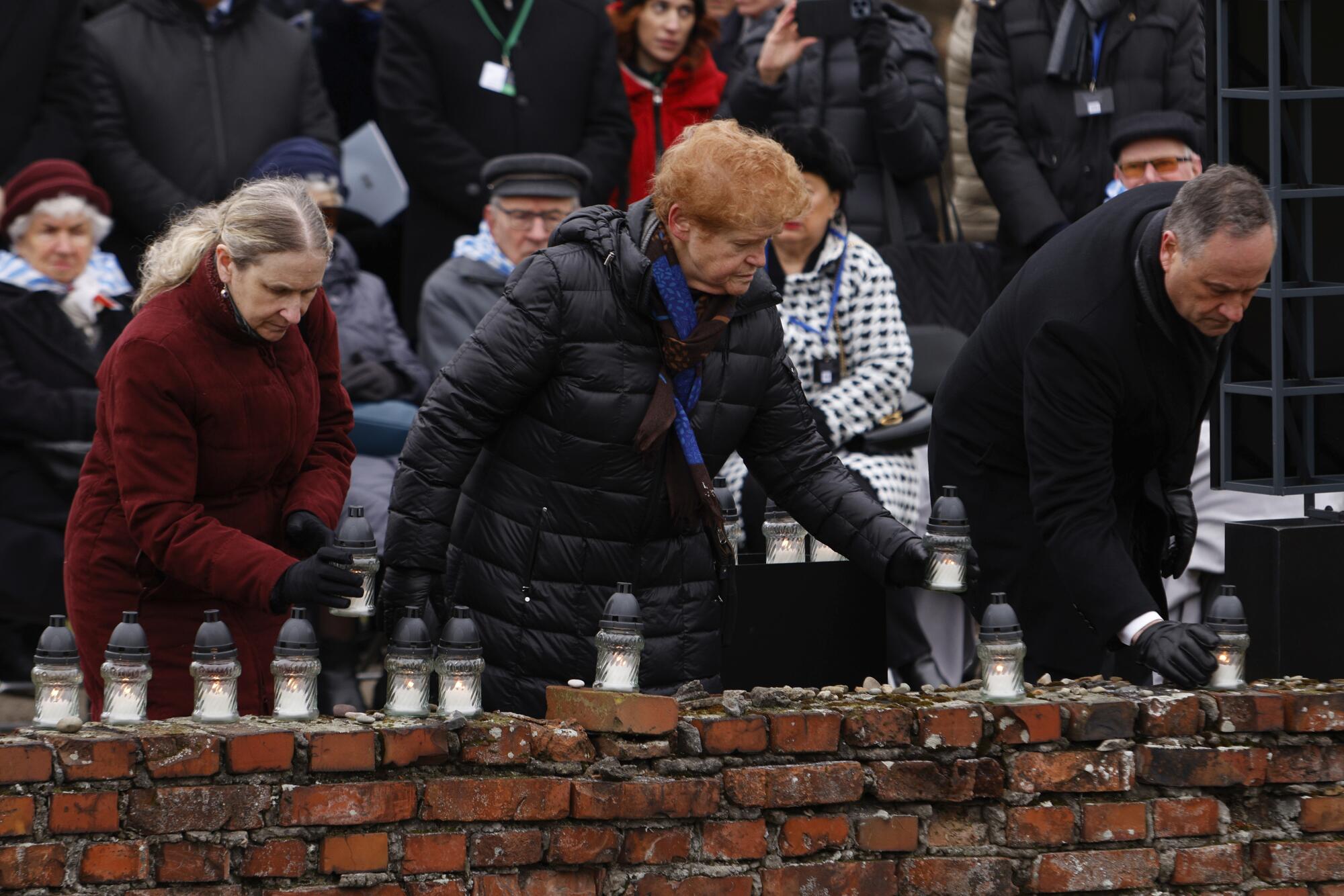
Deborah Lipstadt, center, and Second Gentleman Douglas Emhoff, right, place candles at Auschwitz during 2023 ceremonies marking the 78th anniversary of the camp's liberation in Brzezinka, Poland.
(Michal Dyjuk/Associated Press)
Some critics, especially in the Muslim community, see the increased focus on anti-Semitism as a bias that excludes other minorities. In late 2021, the House of Representatives passed a measure that would create a special envoy to monitor and combat Islamophobia around the world, but the Senate has never acted on it.
The State Department says it addresses hate against other groups — including anti-Muslim violence, which is also on the rise — in other parts of its bureaucracy, such as its religious freedom office.
Lipstadt likes to see herself as an “equal opportunity” advocate for religious freedom and human rights.
In her first months on the job, Lipstadt defended a group of ultra-Orthodox Jews kicked off a Lufthansa flight for refusing to wear COVID-19 masks; a liberal Jewish group harassed by Orthodox Jews as they tried to celebrate bar and bat mitzvot at the Western Wall in Jerusalem; and Jews and Muslims against a European ban on the religious slaughter of goats and other animals.
Her confirmation to the post was delayed for months by Republican Sen. Ron Johnson of Wisconsin, presumably because Lipstadt had accused Johnson of supporting white supremacy by making supportive comments about the Jan. 6 riot at the Capitol, where some participants brandished Nazi-inspired symbols.
Today, his office is decorated with kippahs that were gifts from officials and representatives as diverse as the United Arab Emirates and the FBI. He also displays a beaded menorah shaped like a lion that was given to him during a trip to South Africa. He can quote Bible passages to visitors and recount a recent conversation with Pope Francis at the Vatican.
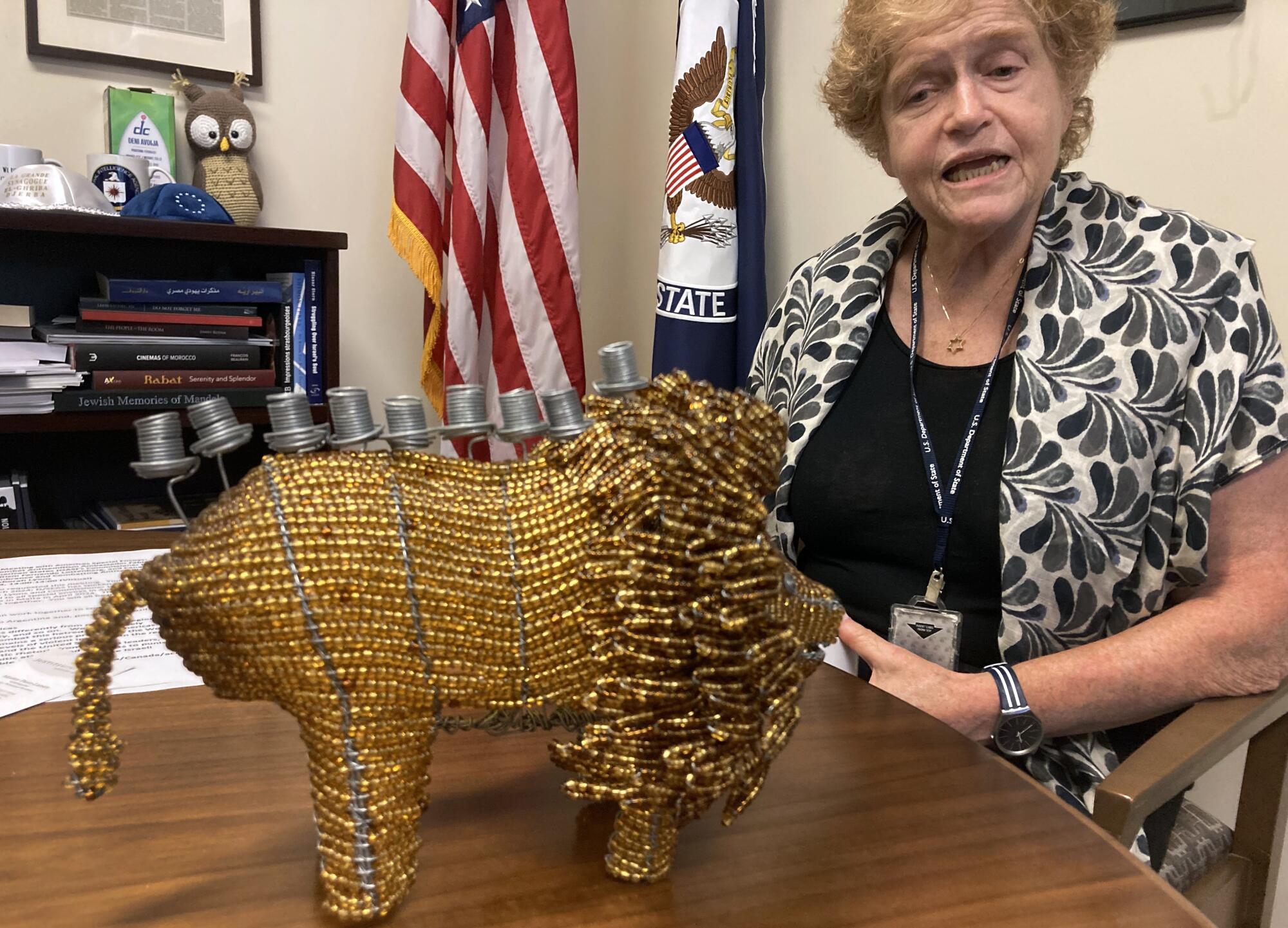
Lipstadt in her office in Washington, DC
(Tracy Wilkinson/Los Angeles Times)
Hearing her speak about the Old Testament, the Exodus, the Pharaohs and Joseph, the Pope declared her a theologian.
“I’m not,” he told the Times with a laugh. “But I guess when the leader of the Catholic Church calls you a theologian, you accept it.”
A large photograph of the Pope has joined the decorations in his office, composed of kipot and menorahs.
While most government officials he meets no longer question the existence of anti-Semitism, many have questions about how to confront it. Education and diplomacy top a long list of options. It remains unclear how much political will there is in many parts of the world to take up the cause.
And while Oct. 7 brought anti-Jewish hatred to the fore, it also forced Lipstadt to cancel what was to be a “robust” follow-up trip to Saudi Arabia. The timing of the trip’s goal — reaching a broader Saudi audience — was not right, she said. The trip has not been rescheduled.
Lipstadt is not tasked with analyzing anti-Semitism in the United States. But prejudice and what she calls its use as a political weapon are universal and globally intertwined, she said. Incidents have been seen on American college campuses as part of protests in support of Palestinians.
“I have friends in this country and in other countries who… are right-wing politically, and they see anti-Semitism on the left, and they are right… absolutely right,” he said. “And I have friends on the left who see it on the right, and they are also absolutely right. The problem is that they often fail to see it standing next to them… of people they agree with on most other things.”
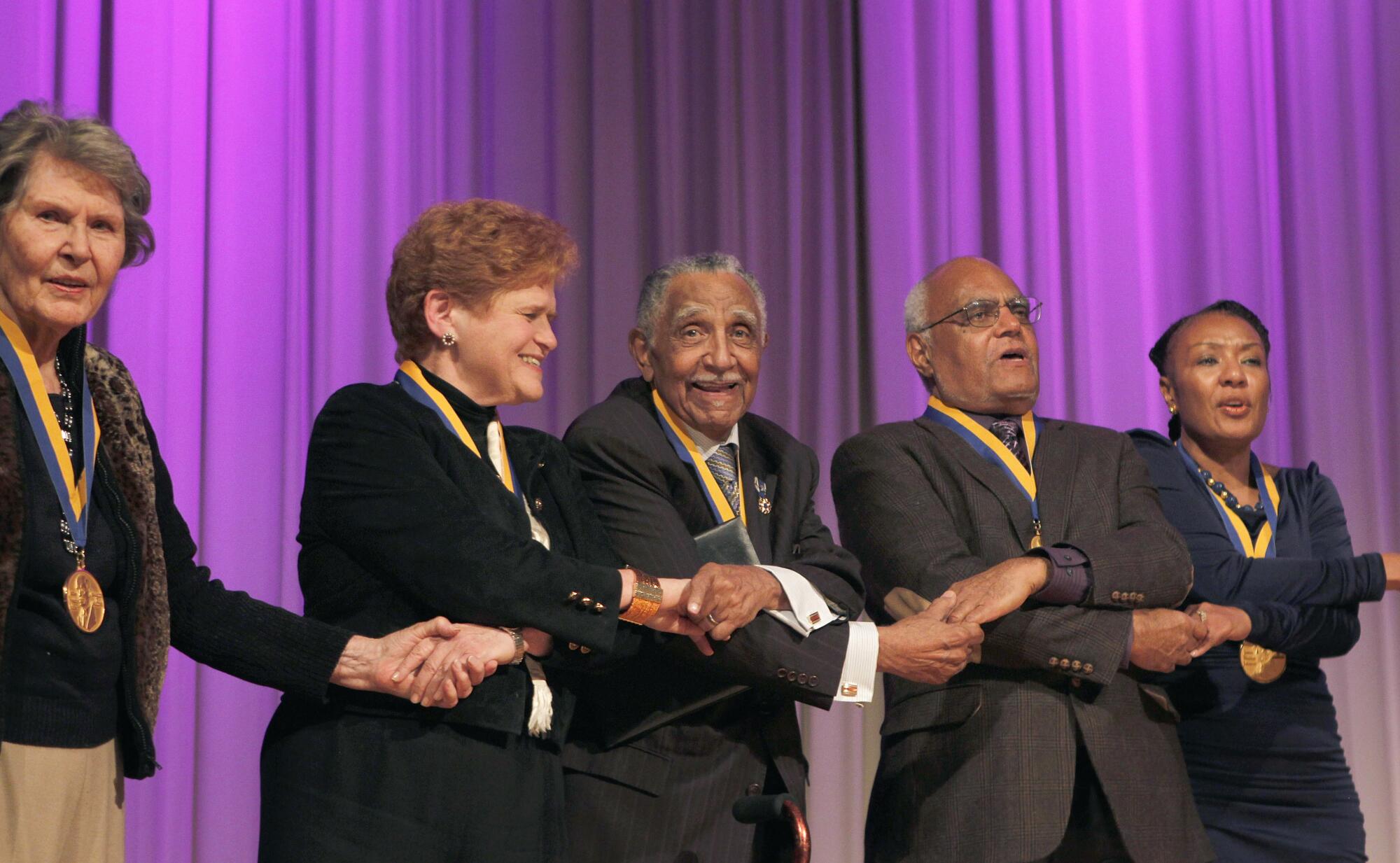
From left, Lucy Cline Huie, Deborah Lipstadt, Joseph Lowery, Robert Moses and Leah Ward Sears sing “We Shall Overcome” during a 2010 ceremony at the Carter Center in Atlanta.
(David Goldman/Associated Press)
And he continued: “When you only look at it from the other side of the political mirror… I have to ask: Are you interested in fighting anti-Semitism or was your main goal to hit your enemies?”
Lipstadt is adamant that criticizing Israeli policy should not be considered anti-Semitic. If it were, she said, then the thousands of Israeli Jews, some of them still in their military uniforms, who regularly fill the streets of Tel Aviv or Jerusalem to protest against Prime Minister Benjamin Netanyahu's government would have to be branded as anti-Semitic.
“Absolutely fine,” he said of the protests. “But what is objectionable is to say that Israel has no right to exist,” he said.
The State of Israel was created 76 years ago by UN mandate as a refuge for Jews after the Holocaust. The creation of Israel displaced hundreds of thousands of Palestinians.
“There are political issues that can affect you a lot,” Lipstadt said. “But that doesn’t allow for prejudice or hatred.”

